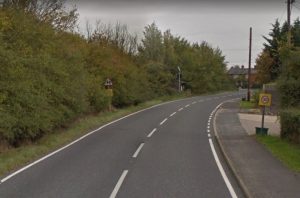 November 2015 Crime Prevention Update
November 2015 Crime Prevention Update
Quite a few bits of advice from Essex Police this month so a handy link list to find what might interest you:
Christ mas Tips
mas Tips
With the Christmas holiday season almost upon us, now is a good time to remind ourselves to take steps to make sure our Christmas isn’t spoiled by criminals.
It creates opportunities for criminals. The hustle and bustle of town centres as we rush around, the value of the goods we buy as presents and store in our homes until the big day. We might also be more trusting and generous at Christmas when requests for charity are made, giving the unscrupulous a chance to collect for their own causes.
So what can we do?
The advice below is often common sense, but you might overlook it in your haste to get everything ready.
Out Shopping
When the shops are crowded, the pickpocket has more chance to steal from you. If you can’t arrange to shop during less busy times, make sure you stay alert and be extra careful with your wallet or purse. When carrying many bags, you will be too busy trying to hold on to these to be aware of anyone stealing from you. You could try to make smaller shopping trips rather than do it all at once and carry too much. Have your purse/wallet close to your body and don’t carry too much cash. The same applies to travelling on crowded buses or trains. If you travel by car, make sure you park in a well- lit area, lock all doors and windows and do not leave presents in view. Try not to return to your car to leave purchases in the boot before continuing with your shopping trip as thieves may well watch car parks for just such a chance. Arrange to collect heavy items from stores when you have finished all of your shopping. Always keep your chequebook and cheque card separately and never keep a note of your pin number with any of your credit or debit cards.
If you need to use an ATM (cash machine), try to use one which is either inside a bank or store, or one that is in a well-lit area, away from nooks and crannies. Be aware of who and what is close by, if the ATM looks as though it has been tampered with, do not use it (and report it to the Bank or store a.s.a.p.). Never use an ATM if someone is using a mobile phone behind you, or close by. (They could be tapping your pin number into their phone memory). It is often a safer option to use a supermarket, shop or store that offers cash-back.
At Home
Having bought all those wonderful presents, don’t make it easy for someone to steal from your home. Keep them out of sight until last thing on Christmas Eve and if you ‘hide’ or store larger items such as bicycles in the shed or outbuildings, make sure they are very secure. Now is a good time to check that you know what you have both normally (TV, Video etc) and with the extra presents you have bought. You may well find you need to check your insurance to make sure you are covered for the value of goods in your home. Take the frame numbers of new cycles and the serial numbers of new electrical equipment for future reference. Remember, empty boxes left outside advertise that you have new goods inside – dispose of packaging carefully.
If you go out for the evening – make it look like someone is at home by turning on lamps or house lights and, the radio. Don’t leave curtains open so people can see your decorations, potential thieves can also see in. Be extra careful about locking doors and windows. As a fire precaution, don’t leave ‘Christmas lights’ on in the house whilst you are out.
If you go away for the holiday period – use an automatic timer for lights and ask a trusted neighbour to watch your home. Don’t forget to cancel newspapers and milk if you have them delivered and either redirect your mail through the Post Office or have your neighbour take mail into the house – unopened Christmas cards and mail, are a sure sign that a house is empty.
Strangers at the door – genuine delivery personnel, usually have uniforms and liveried vehicles and should not need to come into your home. Charity collectors will have identification and will not be offended if you ask to see it. If you are not sure but want to make a donation, ask whether these can be made in other ways, perhaps through a bank.
Out on the town
- With office parties and general Christmas celebrations, pubs, restaurants and other venues are often crowded.
- Don’t leave bags over the back of your chair and keep wallets and purses close to your body to make it more difficult for the pickpocket.
- Busy places make it easier for the sneak thief, so be alert at all times.
- Make prior arrangements as to how you will get home, perhaps nominating a ‘Designated Driver.’
- Avoid any potential disturbances on the street. Stay with friends if you can.
- Avoid the temptation to take a minicab on the street even if you are having difficulty getting a cab – it is illegal for minicabs to take passengers who have not pre-booked.
Make sure someone knows where you are going and what time you will be back. Don’t drink too much – you could become a target for thieves.
 Fire Kills
Fire Kills
- Never place candles near your Christmas tree or materials that can catch light easily.
- Check your Christmas tree lights carry the British Safety Standard sign.
- Test the batteries in your smoke alarm every week. Never remove them.
- Make sure cigarettes are put out properly.
- Make sure your family and visitors know how to escape in an emergency.
- Most fires start in the kitchen. Avoid leaving a cooker unattended.
- Never overload electrical sockets. Always switch Christmas lights off and unplug them before you go to bed.
- Keep candles, lighters and matches out of children’s reach. Never leave burning candles unattended.
- Decorations can burn easily – so don’t attach them to lights or heaters.
- Store fireworks safely: Never go back to a lit firework and keep a bucket of water nearby.
- Take care around open fireplaces as clothes may catch fire.
- Take time to check on elderly relatives and neighbours this Christmas as they are at greater risk from fire.
Back to top
Car Thefts
We all do it, walk away from the car and with our back turned to the car press the button on the key to lock it, never thinking that it may not lock. Yet a simple thing like looking at the car as you press that button to get the confirmation of it locking with lights flashing, or just pulling the handle to check it is locked can prevent a lot of thefts of or from motor vehicles. Why does it not always lock, it could be fault, battery running low, user error or some individual with device to block your signal nearby. In any case Lock it, Check it and we can prevent some crimes.
If you have cars of different values, where possible park the higher value car in your garage. When parking a car on your driveway ensure it is well lit and park the lower value car in front of the higher value car, as the thieves are more likely to target high value cars and will be deterred if they can’t easily drive such a car away from the scene. Locked gates and collapsible posts on the driveway will also deter the thief. With high value cars consider the fitting of a tracking system.
As cars become more and more advanced and rely more and more on computers to manage their systems our thieves become more technical too. To cater for both the technical and less technical thief use the locking system on your vehicle and look to the good old fashioned “Krook Lock”, steering wheel, or pedal lock to supplement it, it has a great visual deterrent.
Lastly before you turn in for the night check that all doors, ground floor windows and easily accessible windows are closed and locked. PVCu doors – don’t forget that the door is not fully locked until you have lifted the inside handle and turned the key. If you have an intruder alarm and can do so activate the downstairs zone. To stop the burglar getting to the vulnerable windows and doors to the rear ensure that side gates are closed and locked.
Please also ensure that you put your car keys somewhere safe and out of sight, when you return home. Put your car keys in a drawer (preferably one that is noisy to open) or some other secure place, but don’t take them up to the bedroom with you.
Back to top
Car Park Thefts
There is an increase in items being stolen from cars in car parks at this time of year whilst drivers are distracted loading purchases into their vehicles.
When you have finished your shopping please:
- If you are on your own or need to leave your vehicle, perhaps to return a trolley, lock your car and try to keep it in sight.
- Do not leave handbags, laptops or mobile phones on the seat at any time even when loading your boot or just returning your trolley. Keep your car door locked when travelling slowly through car parks, in traffic queues or at traffic lights.
- Keep high value items covered or in your boot out of sight. Boxes of cigarettes are particularly desirable due to their high value and ease of resale.
- Remove all high value items from your vehicle immediately when you get to your destination.
- Please always be aware of who is around you and keep safe.
Back to top
Top ten online safety tips.
Watch your back
Whenever you’re about to post something online, pause and just imagine someone in authority, someone you respect, reading that post or looking at that photo. If that feels uncomfortable, don’t do it.
Got a nickname?
Think about using a nickname instead of your real name if you’re signing up to a microblogging site like Twitter.
Consider setting up a separate, personal email account to use with social media sites, rather than using your work, or even your main personal email. Remember, only connect to people you know.
Check your settings
Use the privacy and security settings on social media sites so that only friends and family can see your pages.
Then speak to friends and family and encourage them to tighten their privacy settings too as they could affect you.
Even if your account is locked as private, personal information you have shared with others could still be accessed through their pages.
Mother’s maiden name
Don’t use your mother’s real maiden name as a password or as a bank security answer. It doesn’t really matter whether you use the real one so make up a name that only you know. Just make sure you remember it.
Guard personal information
Don’t post any personal information – your address, email address or mobile number – publicly online. Just one piece of personal information could be used by a complete stranger to find out even more. If you want to include your birthday in your profile it’s safer not to actually display it publicly – providing your full date of birth makes you more vulnerable to identity fraud.
Photos and videos
Be careful about which photos and videos you share on social media sites – avoid photos of your home, work, school or places you’re associated with. Remember, once you’ve put a picture of yourself online, other people may be able to see it and download it – it may not just be yours anymore.
Check what’s needed
Don’t give out information online simply because it’s asked for – think whether whoever is asking for it, really needs it. When you’re filling in forms online, for example to register with a website or sign up for a newsletter, always provide the minimum information possible.
Direct message if you can
It’s almost always possible to send a direct message or private message on social media platforms. If you’re having a personal chat, this is the best option to go for – unless you don’t mind sharing your conversation with millions of other users. Alternatively, send an email from a private account.
Delete old accounts
If you’ve stopped using a social media site or forum, then close your account down. There’s no point in leaving personal information out there unnecessarily.
Get anti-virus software
Make sure you have anti-virus software installed on your computer and be careful what you download or install on your computer.
Back to top
Safe internet shopping
Taken from GetSafeOnline.org
- Ensure that any online retailer unfamiliar to you is reputable by researching them. Establish a physical address and telephone contact details. Remember that the best way to find a reputable retailer is via recommendation from a trusted source.
- Remember that paying by credit card offers greater protection than with other methods in terms of fraud, guarantees and non-delivery.
- Double check all details of your purchase before confirming payment.
- Do not reply to unsolicited emails from companies you don’t recognise.
- Before entering payment card details on a website, ensure that the link is secure, in three ways:
- There should be a padlock symbol in the browser window frame, which appears when you attempt to log in or register. Be sure that the padlock is not on the page itself … this will probably indicate a fraudulent site.
- The web address should begin with ‘https://’. The ‘s’ stands for ‘secure’.
- If using the latest version of your browser, the address bar or the name of the site owner will turn green.
- Some websites will redirect you to a third-party payment service (such as WorldPay). Ensure that these sites are secure before you make your payment.
- Do not pay for goods when using an unsecured Wi-Fi connection.
- Safeguard and remember the password you have chosen for the extra verification services used on some websites, such as Verified by Visa.
- When making a payment to an individual, never transfer the money directly into their bank account but use a secure payment site such as PayPal, where money is transferred between two electronic accounts.
- Check sellers’ privacy policy and returns policy.
- Always log out of sites into which you have logged in or registered details. Simply closing your browser is not enough to ensure privacy.
- Keep receipts.
- Check credit card and bank statements carefully after shopping to ensure that the correct amount has been debited and also that no fraud has taken place as a result of the transaction.
- Ensure you have effective and updated antivirus/antispyware software and firewall running before you go online.
- Where possible, check that the price listed by the retailer on your browser is the same as that quoted on other people’s browsers, to ensure you are not being monitored and overcharged.
The Risks
- Fraud resulting from making payments over unsecured web pages.
- Fraud resulting from making payments using an unsecured Wi-Fi connection.
- Bogus online stores/shops – fake websites and email offers for goods and services that do not exist.
- Buying fake goods intentionally or unintentionally – finding they are of inferior quality and also possibly funding more serious crimes in the process.
- Losing your money when you make direct bank payments, only to find that the goods are inferior, or do not exist at all.
- Receiving goods or services which do not match the advertiser’s description.
- Being offered tailored prices based on information gathered by the retailer about your online shopping habits and websites visited.
Back to top












 mas Tips
mas Tips Fire Kills
Fire Kills Successful Trial of Restorative Justice Completed
Successful Trial of Restorative Justice Completed